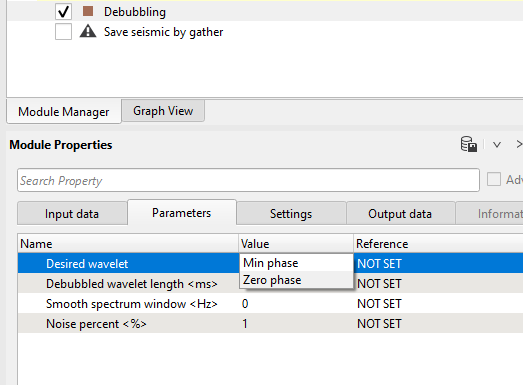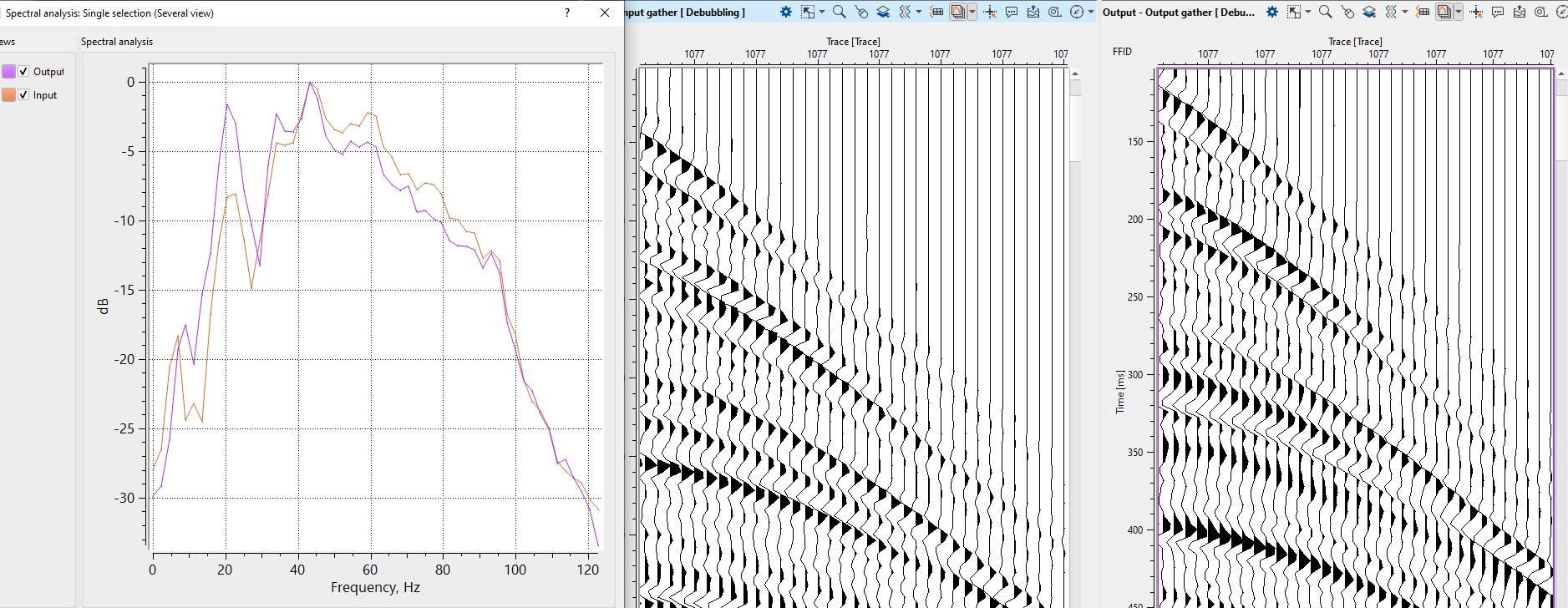 Debubbling and Zero phase correction
Debubbling and Zero phase correction|
<< Click to Display Table of Contents >> Navigation: Tutorials > Seismic Processing 2D MARINE >
|
In marine exploration seismic, we commonly use Air guns as source. These air guns are towed behind the vessel along with the streamers. These air guns releases high pressure of air into the water and creates a bubble. Due to release of huge pressure, it creates a bubbles. These bubbles are continuous expands and collapses. The signature of these bubbles are recorded in the seismic data. We need to attenuate this bubble effect. Normally, seismic source signature is generated before the beginning of the survey. We use this seismic source signature as desired seismic wavelet and remove/attenuate the bubble effect.
Create a workflow 0080-debubble
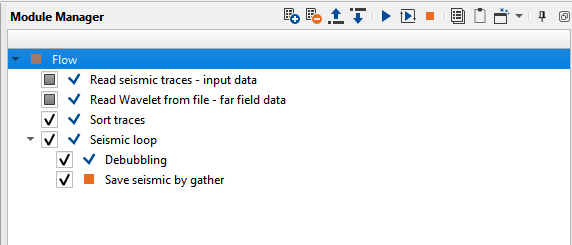
1. Read seismic traces
2. Read wavelet from file
3. Sort traces
4. Seismic loop
5.Debubbling
6. Save seismic by gather
1) Read seismic traces loads seismic trace from the previous step, input file name is 0020_Geometry. Execute the module by double click on it or press on run button ![]() from the upper menu.
from the upper menu.
Define module parameters:
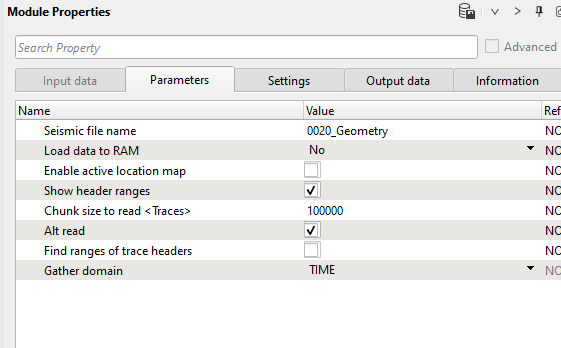
2) Sort traces Here we need to sort seismic traces for Seismic loop. Add Sort traces module and set FFID header for Trace Grouping and CHANNEL as Trace Sorting as it is shown below
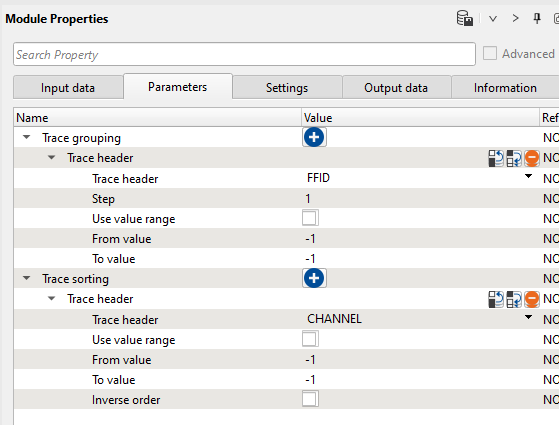
3) Read Wavelet from file This module is used to load any wavelet from an ASCII file. Browse the file name in the file explorer and specify the parameters as per the input wavelet.
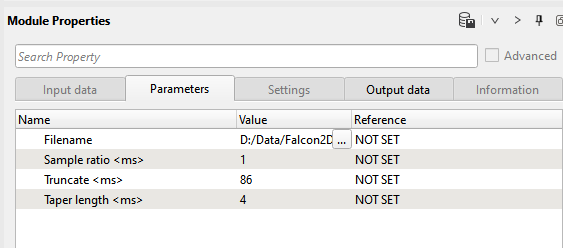
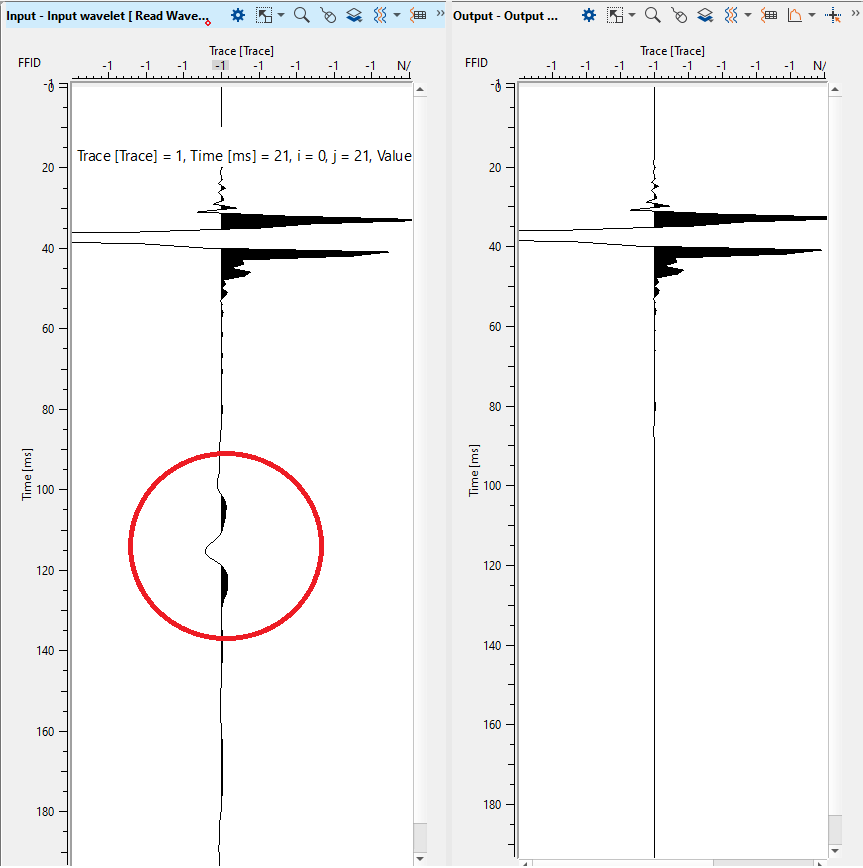
File name - provide the far field wavelet file
Sample ration - Define the sample interval of the input wavelet
Truncate - Look at the input wavelet by displaying the Vista items and find out where the bubble is and accordingly provide the bubble time. Any sample after this specified time will be truncated and the output will be the desired wavelet.
Taper length (ms) - Specify the taper length after wavelet truncation
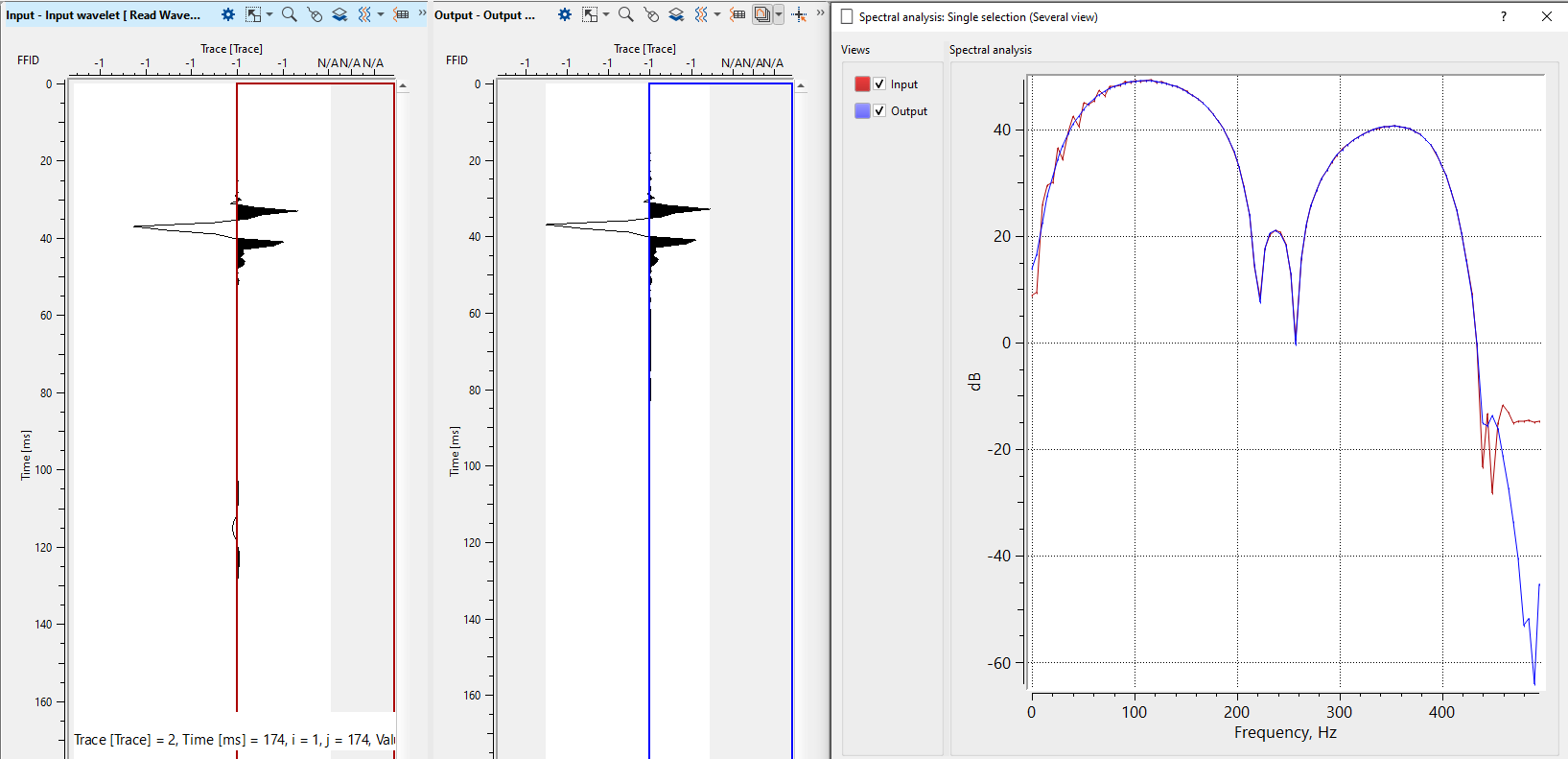
4) Seismic loop Connect trace headers vector (Input sorted headers) from the Sort traces module output and seismic (Input SEG-Y data handle) from Read seismic traces. Depending on the sorting order, it will display the corresponding values in the Parameters tab. In this case, we have sorted in FFID vs Channel so it will display the First FFID value and the total no of sequences. It automatically detects these values and user don't have to input anything here.
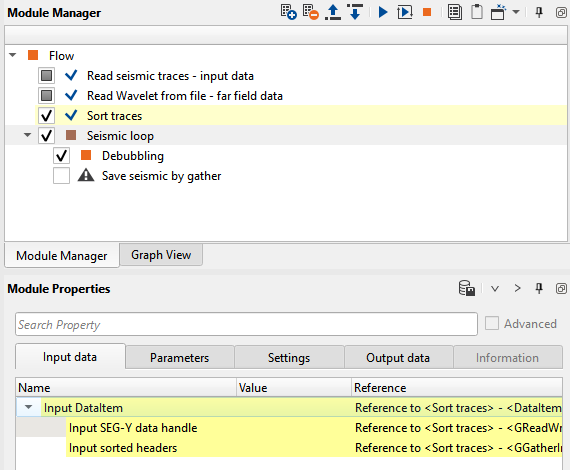
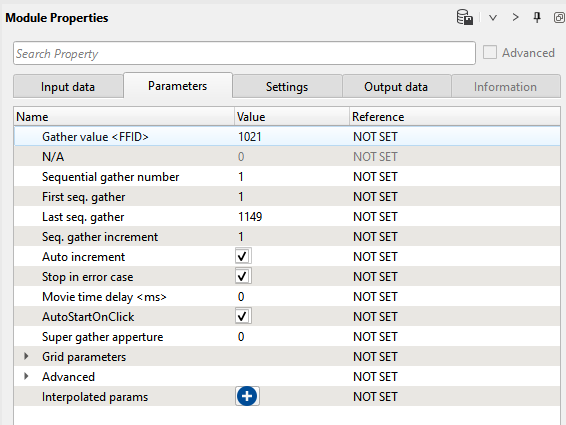
5) Debubbling This module requires two inputs. One is the original input gather which has the bubble and the second one is far field signature where we truncated the bubble and the output will be acts as the second input.
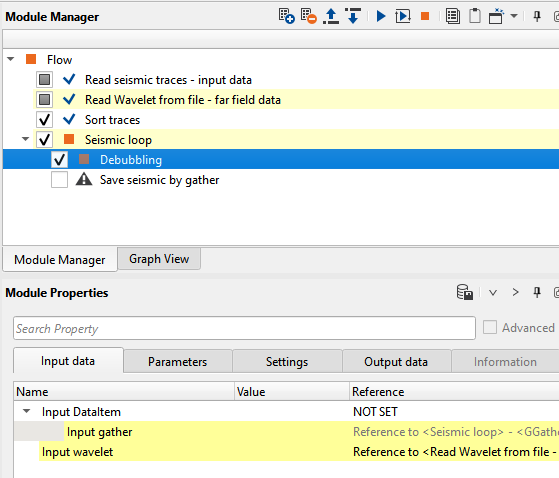
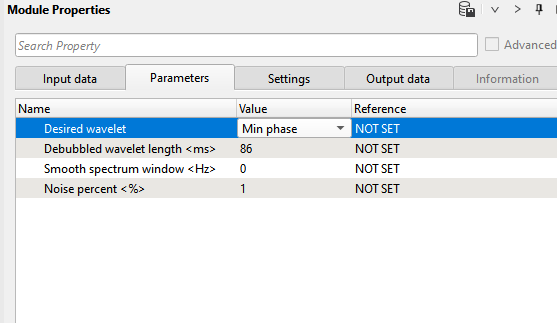
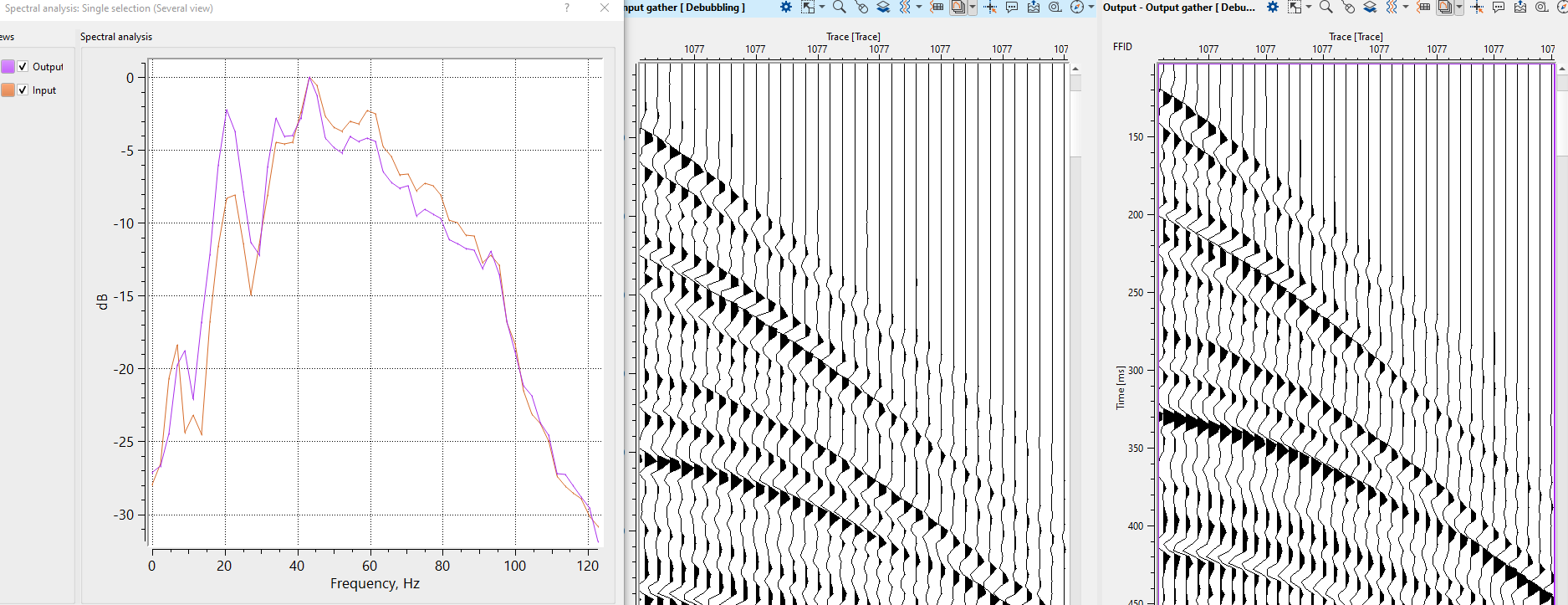
Zero-Phase correction
In the parameters, the user can choose the minimum or zero phase wavelet as the output wavelet. Minimum phase is the preferable choice prior to deconvolution. Deconvolution expects a minimum phase wavelet however for seismic interpretation Zero phase wavelet is preferred.
